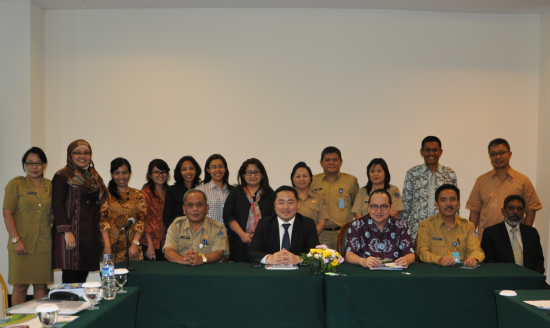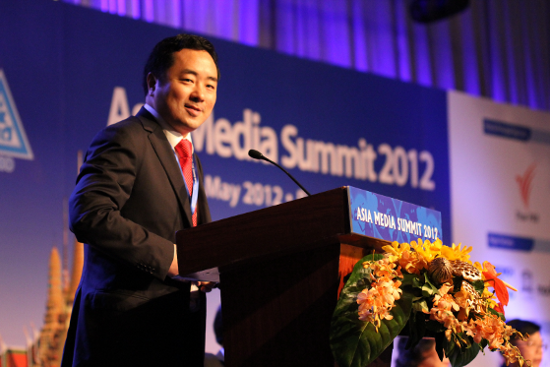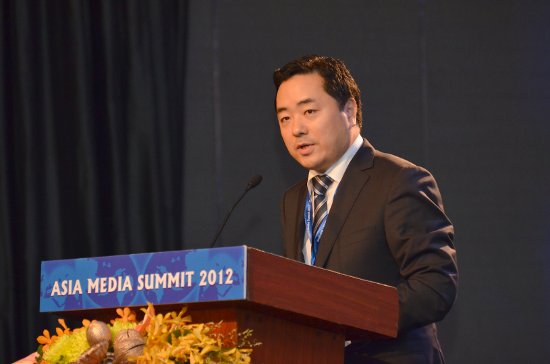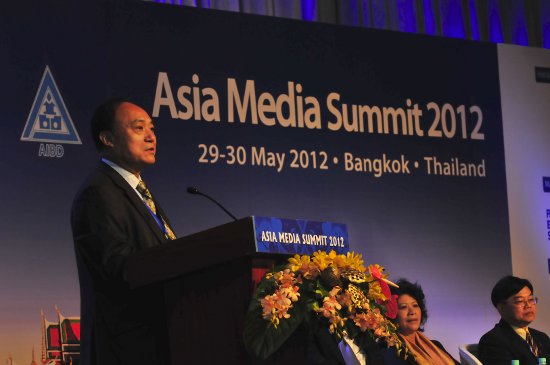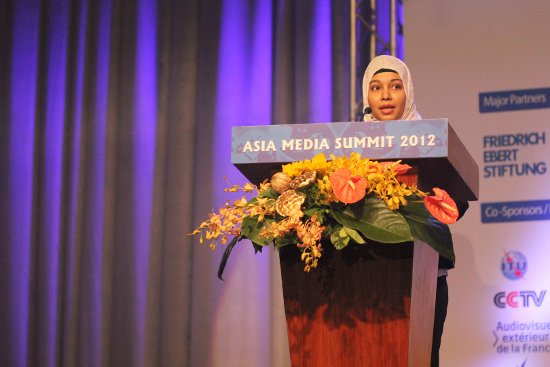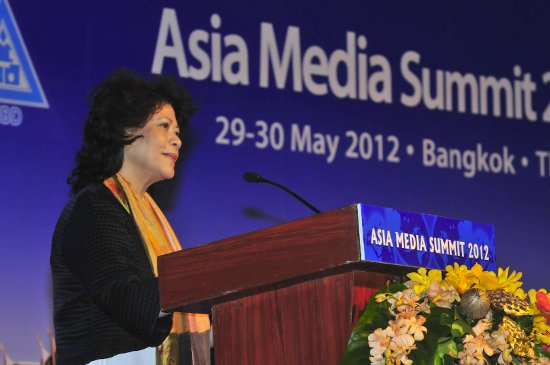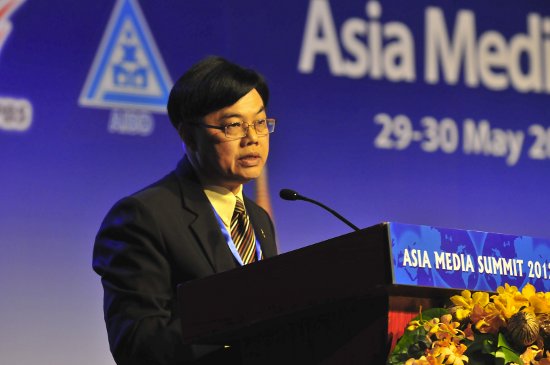AIBD is pleased to announce the Novotel Manado Golf Resort & Convention Centre, Manado, Indonesia, as the official venue for the Asia Media Summit, 29-31 May 2013. AMS 2013 delegates will also stay at the two other official hotels for the summit, the SwissBel Hotel Maleosan and Hotel Aryaduta Manado. Please note that delegates are encouraged to book their flights and accommodation early.

AIBD is pleased to announce the Novotel Manado Golf Resort & Convention Centre, Manado, Indonesia, as the official venue for the Asia Media Summit, 29-31 May 2013. AMS 2013 delegates will also stay at the two other official hotels for the summit, the SwissBel Hotel Maleosan and Hotel Aryaduta Manado. Please note that delegates are encouraged to book their flights and accommodation early.
Online Registration
Online registration for AMS 2013 will open on Friday, 8 March 2013. For registration, please visit the link https://www.aibd.org.my/tools/newdb/register_ams.php. The deadline for registration will be Monday, 15 April 2013.
Welcome Dinner and Gala Dinner & Cultural Show
The official Welcome Dinner for AMS 2013 will be hosted by the Mayor of Manado City for delegates on Tuesday, 28 May 2013. The Gala Dinner & Cultural Show will be hosted by the Governor of North Sulawesi Province on Wednesday, 29 May 2013.
Full Day Excursion
A full-day, free excursion will be held for AMS 2013 delegates on Friday, 31 May 2013. All delegates are encouraged to stay and attend the event. Please visit the AMS 2013 website at www.aibd.org.my/ams for further information on the excursion and other details of the conference.
Official Venue for AMS 2013
AIBD is pleased to announce the Novotel Manado Golf Resort & Convention Centre, Manado, Indonesia, as the official venue for the Asia Media Summit, 29-31 May 2013. AMS 2013 delegates will also stay at the two other official hotels for the summit, the SwissBel Hotel Maleosan and Hotel Aryaduta Manado. Please note that delegates are encouraged to book their flights and accommodation early.
Invitation to AMS 2013
The Asia Media Summit (AMS) 2013, organised by AIBD and hosted by Ministry of Communication and Information Technology (MCIT) together with Provincial and Local Governments will be held in Manado, Indonesia from 29 to 31 May 2013. Several pre-summit events will also be held from 26 - 28 May 2013.
AMS 2013 On The Go
Preparations for the Asia Media Summit (AMS) 2013 in Manado, Indonesia are in full swing to make sure that the 10th AMS will be a resounding success and a unique celebration of media and diversity under the theme of “Delivering on Broadcasting’s Future”.
Winners Awarded at the Asia Media Summit
Winners of the World Television Awards 2012 were officially announced at the recent Asia Media Summit in Bangkok.
Ms. Moneeza Hashmi, President of the Commonwealth Broadcasting Association (CBA) and General Manager, International Relations, HUM TV, Pakistan announced the winners before some 600 participants to the two-day Summit from 29-30 May 2012.
A Successful AMS 2012
The Asia Media Summit 2012 has concluded in Bangkok, Thailand contributing to a meaningful platform for knowledge sharing and building partnerships. It highlighted some of the daunting challenges broadcasters face in the changing media landscape.
New Ideas and Strategies in the Digital World
Mr. Yang Binyuan, Director of AIBD, calls on broadcasters in Asia-Pacific to continue seeking new ideas and concrete directions and strategies in tapping the opportunities of the digital technology. The Asia Media Summit is a good platform for this purpose, he said.
More Challenges in Digital Migration
Mr. Houlin Zhao, ITU Deputy Secretary General, says ITU will continue to work with AIBD and other partners to assist in the best possible and feasible manner in the digital migration process.
New Media Putting Pressure on Broadcast Media’s Attractiveness
Ms. Mariyam Mizna Shareef, Maldives Minister of State for Tourism, Arts and Culture, and President of AIBD General Conference says the Internet, social media and mobile platforms are making a strong presence in Asia-Pacific, offering new ways to push out content and get connected with audiences.
Call for Action on Sustainable Development
Dr. Noeleen Heyzer, UN Under Secretary-General, proposed a five point call for action, urging media to use their skills and resources to create greater impact on sustainable development, the single most important challenge in Asia Pacific, and ensure more people benefit from development.
Building Trust for Impact
For media organizations to create impact in today’s society, they must build and strengthen public trust, and prove beyond any doubt that they have public interest in their heart.



